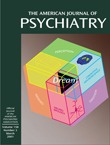Dr. Jeste and Colleagues Reply
To the Editor: We thank Dr. Hamilton for his comments on our case conference. We described a middle-aged man with no prior history of psychiatric illness who developed a paranoid schizophrenia-like psychosis for the first time at age 52. The onset of his illness followed a brief incarceration, although the symptoms continued long after his release. He had a past history of grand mal seizures between the ages of 15 and 29. Approximately 6 years after the onset of his illness, which was treated with antipsychotic medication, his symptoms remitted fully. Four years later, at the time of this report, he was functioning at his premorbid level. We compared this patient’s history to that of Sir Isaac Newton, who reportedly developed a paranoid psychosis de novo at age 51; all his symptoms remitted within 18 months. The main point of our case conference was that some types of late-onset psychoses expose the limitations of our current diagnostic systems and call for more research into the psychoses of late life.
Dr. Hamilton suggests that the death of our patient’s mother before he reached age 14, coupled with a postulated inability to mourn the loss of a parent before the end of adolescence, was a significant factor in the later development of psychosis. Our patient’s mother died of pneumonia after a prolonged illness when he was 11 years old. He had been close to her (as were his siblings) and stated that he “did the best he could” to cope with her loss. He stayed with his aunt for some time since his father had to work. Two years later his father remarried, and he then lived with his father and stepmother, with whom he had a cordial relationship. Early loss of a parent can certainly have a lasting effect on subsequent development. However, whether it was causally related to the onset of psychosis at age 52 (or its eventual remission) in our patient would be difficult to establish.



